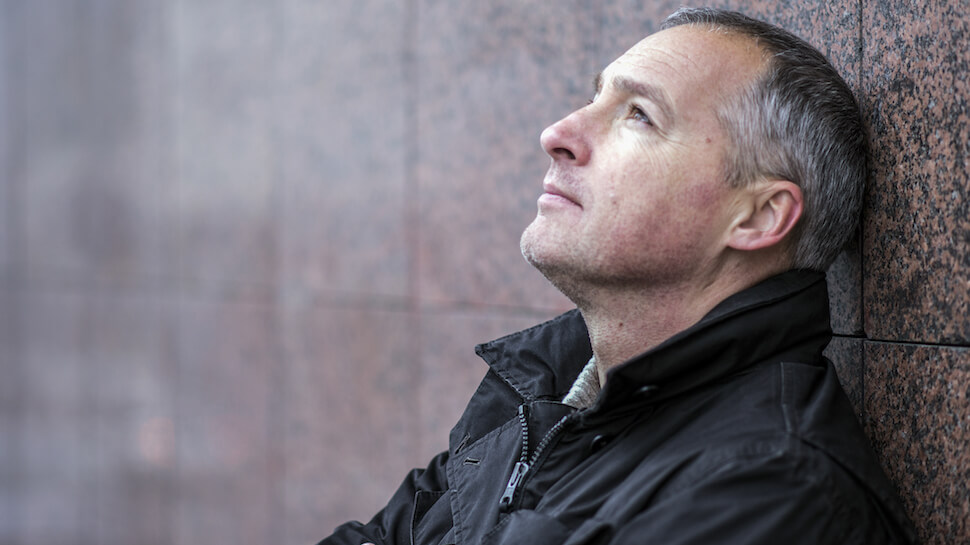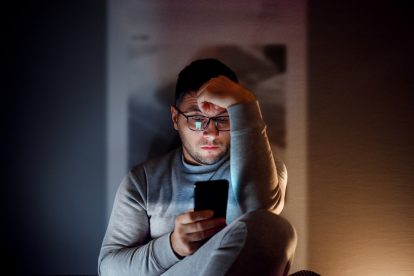
Do I Have Social Anxiety?
Many people wonder, do I have social anxiety, and if I do, is social anxiety a mental illness? If the distinctive symptoms of social anxiety are experienced, including extreme physiological stress responses and thoughts and feelings that interfere with communication and inhibit social performance, the answer to the first question is yes, social anxiety is present, possibly in the form of full-blown social anxiety disorder. The latter is in fact a type of mental illness, but fortunately it is highly responsive to treatment, and if people suffering from severe social anxiety seek professional assistance they have outstanding prospects for long-term recovery.
Social Anxiety Defined
Men and women who suffer from social anxiety face obstacles that prevent them from communicating with others freely, openly, and honestly. Social anxiety responses can be triggered by a wide variety of circumstances, and when they are chronic and severe a person may be diagnosed with social anxiety disorder, a serious mental health condition that affects 6.8 percent of the adult population in the United States in any given year.
While most people take most social interactions for granted, social anxiety disorder sufferers seldom feel comfortable meeting, conversing, or otherwise engaging with strangers or casual acquaintances, which stops them from pursuing friendships and other meaningful relationships.
Both before and during social encounters, people with severe social anxiety suffer unpleasant and debilitating physical, emotional, and psychological symptoms that interfere with their ability to communicate. In general, social anxiety sufferers try to avoid unnecessary social encounters, and they live in fear of anyone trying to start a conversation with them when they are out in public.
The Relationship Between Social Anxiety and Shyness
Social anxiety is sometimes referred to as extreme shyness, and that label is partially accurate. Normal shyness occupies one end of the social anxiety spectrum, while full-blown social anxiety disorder occupies the other, with varying degrees of social anxiety in between.
In comparison to severe social anxiety, shyness produces milder physical and psychological symptoms. Shyness can limit communications at times, but for the most part a shy person can push through their reticence if they really want to meet someone new, talk to someone interesting, or ask for assistance when trying something new or different.
Normal shyness is not usually associated with low self-esteem but is more of an aspect of personality. While their social anxiety may occasionally hold them back, for the most part shy people seem to be introverted by nature and actually prefer to avoid excessive socializing.
In contrast, severe social anxiety imposes itself on sufferers and repeatedly prevents them from pursuing desired social relationships or opportunities for fun or personal growth. People with social anxiety disorder would like nothing better than to break through their self-imposed limitations, but their extreme anxiety and obsessive fears of being scorned, denigrated, or laughed at are simply too strong to overcome. Shyness and severe social anxiety are both aspects of personality, but only one is so powerful and overwhelming that it imposes significant restrictions on personal choice.
Many people ask, is social anxiety a mental illness, and the answer is yes, when it manifests chronically and pervasively it is exactly that. Shyness affects reactions, but social anxiety disorder deeply affects lives, and that difference in degree and intensity is why severe social anxiety is classified as a mental health disorder and not as a quirk of personality.
Signs That Indicate the Presence of Social Anxiety Disorder
Men, women, and adolescents who frequently experience difficulties in social situations may think of themselves as shy, and other people may call them that as well. That is a term everyone is familiar with, and it is routinely used to describe people who are not outgoing or who seem reluctant to express themselves or participate fully in conversations.
While most people who experience mild-to-moderate, situational social discomfort probably can accurately be referred to as shy, in other circumstances that label is clearly inadequate. Shyness can can reach a tipping point where it transforms into a more general and pervasive form of social anxiety, possibly severe enough to qualify as social anxiety disorder.
How can someone know if they suffer, not just from shyness, but from clinically diagnosable social anxiety disorder? By observing multiple examples of the physical, psychological/emotional, and behavioral signs of the condition, which is exactly what mental health professionals do when they make an official diagnosis.
Begin Your Recovery Journey.
877-727-4343Physical Signs
People who suffer from severe social anxiety exhibit a range of physical responses triggered by stress-inducing social encounters. They include:
- Sweating
- Blushing
- Shakiness, trembling, or shivering
- Racing heart rate
- Tightness in the chest, respiratory difficulties
- Muscle aches or twitches in the face or upper body
- Nausea or stomach cramps
- Dry mouth
- Lightheadedness or feeling faint
- Rapid, inaudible, and/or unclear speech
- Brain fog (an inability to listen or think of what to say)
Those who suffer from full-blown social anxiety disorder will likely experience these disturbing physical symptoms in social situations more often than not. They may be comfortable around close family members and friends, but almost any other encounter will likely provoke an anxious or panicky physiological response.
Psychological and Emotional Signs
The minds of social anxiety disorder sufferers are always busy reflecting on their fears, expectations, past experiences, and concerns over performance in social situations. They will do this before, during, and after social interactions, compulsively and in a way that can damage their self-esteem.
The psychological and emotional signs of severe social anxiety include:
- Fear of rejection, or being judged as inferior by observers or conversational partners
- Concern about being embarrassed or humiliated by poor social performance
- An aversion to being the center of attention
- Taking any teasing or constructive criticism personally (and being devastated by it)
- Extreme discomfort and feelings of inadequacy around authority figures
- Overexcitement at being praised or commended (social anxiety sufferers reflexively care too much about what others think)
- Unwillingness to speak up and offer opinions, for fear of being thought stupid or foolish
- Inability to stand up against bullying, teasing, or mistreatment of any type (social anxiety sufferers fear the consequences will be worse if they respond)
- Feelings of shame and embarrassment over the social anxiety itself
- Stewing over what was said and done long after a conversation has ended
- Strong anticipatory anxiety and fear before a social encounter takes place
These symptoms indicate extreme self-consciousness, high sensitivity, and an inclination to make self-incriminating personal judgments. Social anxiety sufferers fear the negative judgments of others—which in reality seldom occur—but that doesn’t stop them from criticizing themselves all the time.
Behavioral Signs
People who are shy or naturally introverted may not enjoy certain types of social interactions, but if the stakes are high and wading into the social pool is necessary to achieve their goals, they will do it.
With social anxiety disorder it is different—they may want to make connections with other people but are too intimidated to attempt it. Sufferers experience their anxiety as a virtually impenetrable barrier, and rather than risk rejection or embarrassment they will simply avoid the situations that cause them so much stress and worry if at all possible.
This pattern of avoidance is a key identifier of severe social anxiety, and anyone who exhibits this behavior on a regular basis is likely suffering from social anxiety disorder.
Getting a Social Anxiety Disorder Diagnosis
The latest edition of the American Psychiatric Association’s Diagnostic and Statistical Manual of Mental Disorders (DSM-5) lists 10 criteria that mental health professionals rely on to diagnose social anxiety disorder.
These diagnostic markers of social anxiety include:
- Fear and anxiety specific to certain social settings (a few or many)
- Fear of showing anxiety and being rejected socially as a result
- Consistent distress during unwanted or unexpected social interactions
- Avoidance behaviors that reduce the risk of unpleasant social encounters
- Severe anxiety that is disproportionate to any realistic consequences
- Serious social anxiety symptoms that have been experienced frequently for six months or longer
- Impairment of functioning experienced broadly in one or more specific domains (interpersonal, occupational, etc.)
- No medical condition, substance use disorders, or adverse reactions to medication that can explain the anxiety symptoms experienced
- Symptoms of social anxiety that cannot be traced to a co-occurring mental health disorder
- Fear and anxiety that cannot be explained by self-consciousness due to scars, disabilities, or other unusual physical features
Social anxiety disorder will only be diagnosed after an extensive interview and evaluation have been completed. Theoretically, any medical professional can make the diagnosis, but psychiatrists and psychologists with previous experience treating social anxiety are most prepared to correctly identify and classify severe social anxiety symptoms.
Treatment and Long-term Prognosis
Chronic and intense social anxiety is mentally and emotionally draining, and people who experience the psychological and emotional symptoms of social anxiety disorder are often desperate to find relief.
Fortunately, they do have an escape route, and that is through participation in long-term, ongoing treatment programs organized by qualified mental health/social anxiety disorder experts. When social anxiety sufferers seek treatment and are strong in their commitment to healing, they have an excellent chance of overcoming even the most devitalizing symptoms and effects of their condition.
For those who’ve suffered from severe social anxiety for many years, recovery should ideally begin in a residential mental health treatment facility. In this safe, caring, supportive environment, social anxiety sufferers can concentrate completely on their healing process, deepening their knowledge of their condition while developing coping skills they can make use of for the rest of their lives. This type of comprehensive treatment is especially important if the social anxiety sufferer has been diagnosed with a co-occurring mental health disorder, which is often the case.
After residential treatment, long-term outpatient programs and aftercare healing regimens can reinforce the lessons learned during inpatient therapy, giving social anxiety sufferers a legitimate chance to put their most difficult days behind them.
Socially anxious thoughts and behaviors are responsive to both individual and group psychotherapy and medication, and with the right combination of mental health services and life skills/social skills training people diagnosed with social anxiety disorder can dramatically reduce the frequency and intensity of their symptoms. Learning to manage social anxiety takes effort and dedication, but over time the disorder can be controlled and its impact reduced by a significant amount.





